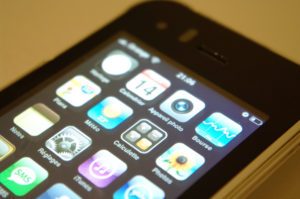Medical Apps – Who’s Responsible?
Posted in Drug & Medical Devices on September 26, 2013
FDA looking at mobile medical applications
 From programming your DVR to dealing with a car accident, these days there seems to be an “app” for everything. Now, according to the U.S. Food and Drug Administration, when a mobile device runs certain medical applications, it will be subject to FDA oversight.
From programming your DVR to dealing with a car accident, these days there seems to be an “app” for everything. Now, according to the U.S. Food and Drug Administration, when a mobile device runs certain medical applications, it will be subject to FDA oversight.
The FDA has issued guidance to mobile app developers in an effort to protect patients from medical apps that could be harmful if they do not work properly. The guidance document states that the FDA will focus its oversight on medical mobile apps that meet the definition of a medical device in the Federal Food, Drug, and Cosmetic Act and are intended to:
- transform a mobile device into a medical device regulated by FDA; or
- be used as an accessory to a medical device regulated by the FDA
A mobile device is “transformed” into a medical device when it performs the same task as a medical device that is already regulated by the FDA, such as controlling the inflation and deflation of a blood pressure cuff. Accessories to medical devices would include apps that enable physicians to make diagnoses based on medical test results sent to their mobile device, such as x-rays or blood work.
Not all medical apps will be regulated
While many medical apps may fall into these two categories, the FDA stated they are focusing their oversight “on mobile apps that are devices for which safety and effectiveness are critical.” This means apps that recommend calorie or carbohydrate intake or track trends in a patient’s blood pressure or glucose levels would not be regulated.
As more medical apps are developed for the healthcare industry, the government must adapt its standards to protect patients and to set standards for liability in the event of an adverse effect. The FDA has made it clear that their policy only applies to the application software and not to the use of smartphones or tablets themselves. Providers of mobile medical apps, such as the iTunes store, would not be treated as a medical device manufacturer.
The FDA has already cleared around 100 mobile medical apps so far, and experts expect the market to grow exponentially in the future. If you are considering using a medical app on your mobile device, it is important to speak to your doctor. While many of these apps are helpful, they are not meant to be a substitute for care from a qualified professional.
Sources:
“FDA to regulate some medical-related apps” by Michelle Castillo, CBS News, September 24, 2013.
“Keeping Up with Progress in Mobile Medical Apps” FDA Consumer Health Information, September 2013.